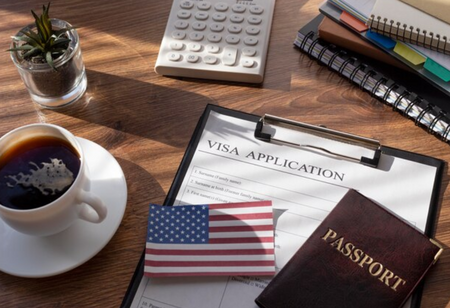By Consultants Review Team
 Immigration fees in the United States are expected to rise in 2024. The United States Citizenship and Immigration Services (USCIS) proposed immigration service fees and changes to some other immigration benefits earlier this year. The plan suggests doubling the costs charged by US immigration officers.
Immigration fees in the United States are expected to rise in 2024. The United States Citizenship and Immigration Services (USCIS) proposed immigration service fees and changes to some other immigration benefits earlier this year. The plan suggests doubling the costs charged by US immigration officers.
"In January 2023, USCIS proposed a significant increase in immigration filing fees, with the public comment period ending on March 13, 2023." The implementation of the aforementioned raise has been delayed due to criticism, and it is now likely to be completed in early 2024', said Vipul Jai, Partner, PSL Advocates and Solicitors.
If enacted, the proposed fee increases would have a significant impact on a variety of immigration categories. "Notably, the H-1B e-registration fee may be raised by 2050%, from $10 to $215." It is also intended to increase the petition fee for an H-1B visa application by 70%, from $460 to $780. Furthermore, the changes to immigration fees would influence applications for the green card, which allows a person to live and work in the United States permanently. Green card applications are expected to rise by 19%, from $640 to $760, according to Punyam Bhutani, Associate at SKV Law Offices. Such an increase will have financial ramifications for Indian visa applicants and employers who sponsor these visas. Increased fees can raise the overall cost of the visa application process, affecting both individuals and businesses. This can include the costs of the initial petition, extensions, and other related processes.
"The proposed rule will have an impact on employers who sponsor foreign workers and may have an impact on recruitment strategies in the coming days." Other immigration-related services, including medical examinations and visa application fees, are already too expensive for Indian visa applicants. The planned H-1B cost increases would add to the already heavy financial burden, making it even more difficult for individuals to pursue the visa," Jai added.
The USCIS has suggested raising the pre-registration cost for the most sought-after H1-B visa from $10 to $215, a 2,050% increase. The H-1B visa allows US firms to hire foreign workers temporarily in specialized occupations such as technology, science, engineering, and mathematics. The H-1B pre-registration fee is normally paid by the employer or their authorized agent at the time of registration. The $10 registration cost, which is separate from the H-1B petition filing price, was implemented in 2019. The registration fee is required by USCIS regardless of whether the potential petitioner's registration is chosen.
The new proposal also calls for a 70% rise in the petition fee for an H-1B visa application, from $460 to $780. Furthermore, the application fee for citizenship may rise by 19%, from $640 to $760. According to US immigration officials, the planned increases are intended to solve USCIS's income issues, which have been compounded by the pandemic.
"USCIS conducted a comprehensive biennial fee review and determined that its costs have risen significantly since the previous fee adjustment due to expanded humanitarian programmes, increased demand, longer processing times, and a need for more USCIS employees." "With the effects of the budget cuts and its current level of spending, USCIS cannot maintain adequate service levels without long-term impacts on operations," stated the draft document. It went on to say that in the spring of 2020, as a result of the epidemic, USCIS revenue fell by 40% in April and another 25% in May, compared to projected collections.
According to USCIS, its current fee schedule, which is estimated to generate an average fee revenue of $3.28 billion per year in FY 2022 and 2023 (including premium processing), is likely to yield a total fee revenue of $4.5 billion per year. The proposed fee rule, on the other hand, aims to earn an additional $1.9 billion per year on average over the present baseline. '
Manmeet Kaur, Partner at Karanjawala & Co., predicts that a proposed immigration fee increase will be implemented in the first quarter of the coming year, pending requisite clearances. "Increased fees would increase the financial burden on individuals applying for the H1-B visa." "The overall cost of hiring Indian talent for the US market would rise," Kaur said.
The most significant increase is planned for EB-5 investors in the investment-linked green card program, with a potential 204% increase in the initial 526 petitions to $11,160 and a 148% increase to $9,525 for I-829 status.
The petition fee for a L Visa (Intra-Company Transfer) has been suggested to be increased by 200%, from $460 to $1,385. Similarly, the petition fee for an O visa (non-immigrant worker) may increase from $460 to $1,055, representing a 129% increase.
We use cookies to ensure you get the best experience on our website. Read more...